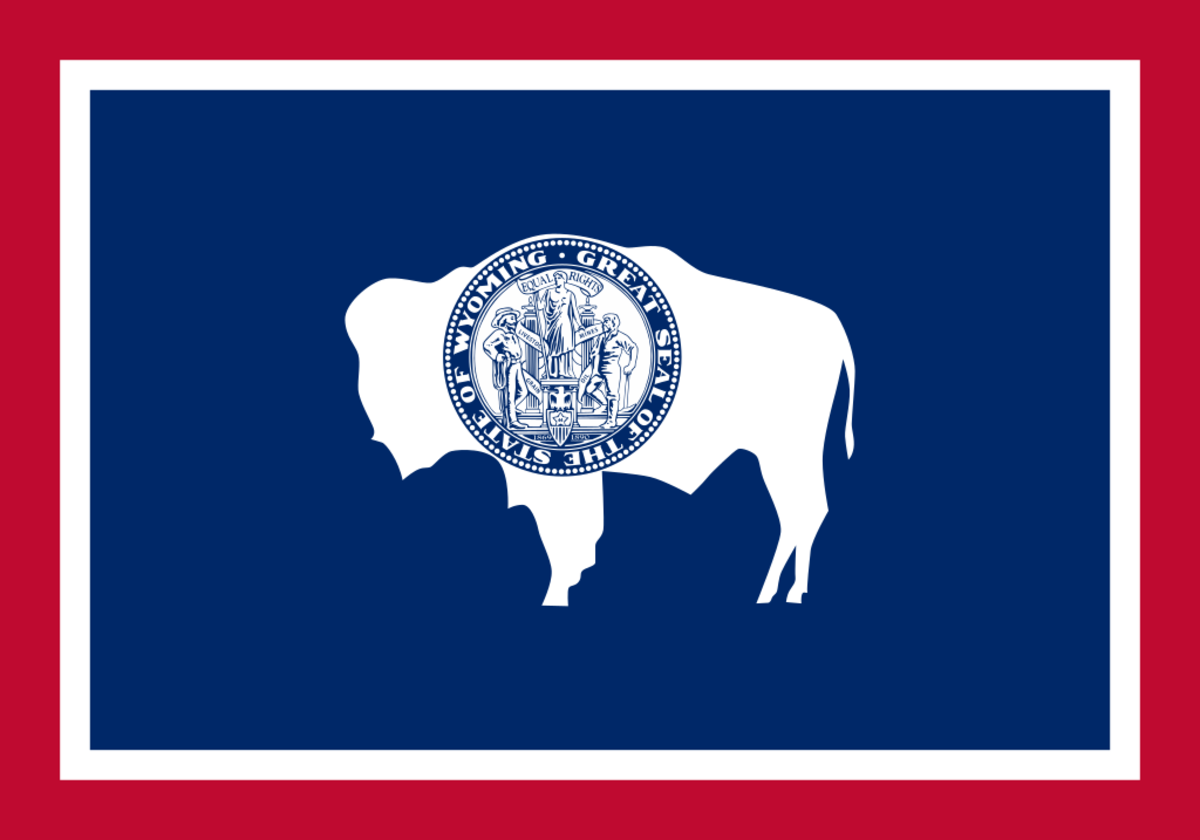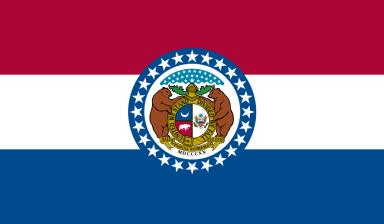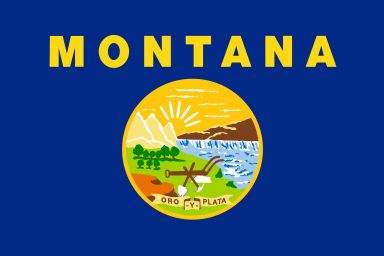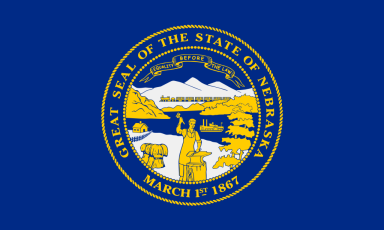Wyoming Employment and Labor Laws

In contrast to its civilian labor force, which comprises more than 298,000 individuals, Wyoming experiences a relatively low number of workplace discrimination lawsuits. In 2022, the Equal Employment Opportunity Commission recorded 38 cases from the state, which made up only 0.1% of the country’s total discrimination charges. Twenty-eight of these involved employer retaliation, with 22 stemming from violations of Title VII of the United States Civil Rights Act.
Though these numbers are lower compared to other states’ records, Wyoming remains vigilant about incidents concerning workplace discrimination and the unlawful treatment of employees. To combat the occurrence of further cases, it continues to enforce laws that safeguard the rights of workers, both as individual employees and as members of labor unions and organizations.
In order to educate workers about their rights under both state and federal law, this article will present an informative summary of Wyoming’s labor and employment statutes. It will also provide them with information on how to take legal action against their employers in case they have been wrongfully terminated, along with the requirements and limitations they will encounter throughout the process.
Wage Laws in Wyoming
Minimum Wage
Wyoming is tied with Georgia having the lowest minimum wage in the country at $5.15 per hour. This is lower than the federal hourly minimum of $7.25, followed in certain states. However, employers in Wyoming covered by the Fair Labor Standards Act must pay their workers the federal minimum wage.
The state also has subminimum wages for specific worker groups, as follows:
$4.25 per hour for employees younger than 20 (for the first 90 days of their employment).
$6.16 per hour (or 85% of the federal minimum) for student workers and interns.
Employees with disabilities also have a subminimum wage defined by state government agencies.
On the other hand, the following worker categories are exempted from both state and federal wage requirements:
Agricultural workers.
Outdoor salespersons.
Domestic service workers.
Seasonal workers.
Employees working in an administrative, executive, or professional capacity and earning over $684 weekly.
Tipped Employees
Per the FLSA, employers in Wyoming can take a tip credit of up to $5.12 from tipped employees earning more than $30 in tips per month. Moreover, employers must pay tipped employees at least $2.13 per hour, and they must make up the difference if these workers’ total pay does not match the $7.25 minimum wage.
The FLSA also allows employers to establish a tip pool where tipped employees contribute a portion of their tips to coworkers who do not ordinarily receive them. However, this only applies if an employer pays cash wages equal to the federal minimum. Additionally, no employer may take and keep a portion of their workers’ tips directly or from a tip pool for whatever reason.
Overtime Pay
In Wyoming, overtime pay is given to employees who work more than 40 hours in a week, as defined by the FLSA. The rate for overtime pay is equal to 1.5 times a worker's regular earnings. Those who are exempted from overtime provisions in the state include:
Salaried administrative employees, supervisors, and professionals.
Outdoor salespersons.
Retail store workers who are employed on a commission basis.
Executive, administrative, and professional employees are also exempted if they are earning more than $684 per week.
Wyoming’s Right-to-Work Doctrine
Wyoming follows a right-to-work doctrine that grants workers the freedom to become members of a labor organization, as defined in the state’s labor laws. This means employers cannot force their employees to join or abstain from joining a union as a prerequisite for their continued employment. In addition, no worker is required to have connections with an organization in order to find a job.
Any individual who violates the state’s right-to-work laws will be charged with a misdemeanor. They can be imprisoned for a maximum of six months and fined up to $1,000.
Wyoming’s Workers’ Compensation Laws
Under Chapter 14 of the state’s employment and labor laws, employees in Wyoming are entitled to receive workers’ compensation benefits if they suffer a work-related injury or illness. As such, employers must obtain insurance policies covering these benefits through the state’s Workers’ Compensation Program, and no employer may retaliate against a worker for filing a compensation claim.
Generally, an injured worker has up to one year to file a claim, though they must also notify their employer of their injury within 72 hours of its occurrence. In turn, their employer must inform the Workers’ Compensation Division of the Wyoming Department of Workforce Services of the claim within 10 days.
The types of benefits a worker can receive often include:
Medical care.
Wage replacement.
Mileage reimbursements for traveling to and from a medical facility for treatment.
Coverage for vocational rehabilitation.
Disability benefits for total and partial disabilities, whether permanent or temporary.
Death benefits (if a worker dies from their injury).
If a worker’s compensation claim is denied, they can contest the decision by submitting a motion to the Workers’ Compensation Division, which will schedule a hearing regarding the matter. If the worker disagrees with the decision at the hearing, they can choose to file an appeal. Alternatively, they can resolve the matter through mediation. Regardless of their choice, it is viable for them to have a workers’ compensation attorney who can assist them throughout the process.
Is Wyoming an At-Will Employment State?
Yes, Wyoming adheres to the at-will employment doctrine. This means workers in the state can be fired at any time and for any reason, as long as it is not deemed illegal by state law. In general, employers can fire a worker for misconduct, violations of company policy, or poor performance. They can also do so as part of their cost-cutting initiatives. Conversely, workers can quit their jobs at any time under at-will rules.
One example of the doctrine at work involves the 2000 case involving Jerry Worley, a former employee of Wyoming Bottling Company, Inc. After being fired in 1996, Worley sued Wyoming Bottling for a breach of his employment contract; he had previously been promised job security by the company’s then-president in a discussion. However, the court ruled in the company’s favor as Worley’s contract explicitly contained an at-will disclaimer, and the alleged promise of job security lacked the “additional consideration” or specific language needed to change the provisions of his contract.
In spite of this, there are still instances where a written or oral contract may prevent a worker from being fired under Wyoming’s at-will doctrine. For instance, a contract may state that an employee cannot be fired except under specific provisions, or it can grant job security after a worker has finished a probationary period.
Such a contract can be either written or oral, though there are also instances where it is an “implied” contract. Specifically, a company handbook may state that a worker cannot be terminated unless their employer follows certain disciplinary procedures first. As such, this can become the basis for an implied contract that prevents an employer from firing a worker at will.
What Qualifies as Wrongful Termination in Wyoming?
In spite of Wyoming’s at-will employment rules, there are still statutory guidelines that prevent employers in the state from terminating workers without a legal reason. As mentioned above, an employer cannot fire a worker at will if their contract or the company’s handbook specifically prevents it. If they terminate an employee regardless, they can be charged with wrongful termination.
Additionally, state and federal laws prohibit employers from firing workers for discriminatory reasons. In particular, a worker cannot be terminated based on their race, gender, nationality, religion, or age (for those who are at least 40 years old). This is mandated by Wyoming’s Labor and Employment statutes and other federal guidelines involving fair employment practices. These laws also make it illegal for an employer to fire an employee due to the latter’s disability or pregnancy.
Furthermore, an employer cannot terminate workers in violation of public policy or as retaliation against certain actions, such as:
Filing a workers’ compensation claim.
Submitting a complaint regarding equal pay.
Going on medical or family leave.
Reporting illegal company practices.
Testifying in court in cases concerning workplace violations.
How Do You Report an Employer in Wyoming for Wrongful Termination?
Workers in Wyoming who have been wrongfully terminated can report their employer by doing any of the following:
Submit a complaint to the Wyoming Department of Workforce Services’ Labor Standards Office by calling either 307-235-3679 (Casper office) or 307-777-7261 (Cheyenne office). Alternatively, they can send a message through fax at 307-235-3688 (Casper office) or 307-777-5633 (Cheyenne office).
Submit a complaint to the Wyoming OSHA Division by calling 307-777-7786. This is for workers who have been discriminated against for reporting unsafe working conditions.
Submit a complaint to the Equal Employment Opportunity Commission. A worker can find the nearest EEOC office by calling 1-800-669-4000 or by checking its field offices directory online.
Submit a complaint to one of the local offices of the United States Department of Labor’s Wage and Hour Division. This is for workers who have been fired for going on leave as mandated by the Family and Medical Leave Act.
It should be noted that if a company has only two to 14 employees (or less than 20 if a case involves age-based discrimination), a worker can only file a complaint under state law with the WLSD. On the other hand, if a company has 15 employees or more, a worker can submit a complaint under state and federal law. Workers also have the option to “cross-file” their complaint with the EEOC by notifying the WLSD.
When initiating a complaint for wrongful termination, the burden of proof falls upon the worker. As such, they can gather evidence supporting their case; this usually includes their employment contract and the notice of their termination, as well as testimonies from eyewitnesses and relevant documents like the company handbook.
Workers can also choose mediation as an alternative to filing an administrative complaint for wrongful termination, reducing the legal and financial burdens of pursuing a lawsuit in court. The WLSD and the Department of Administration & Information can inform people about the guidelines in the mediation process for cases involving state law. Similarly, the EEOC has its own mediation options for those who have complaints under federal law.
To help identify the other requirements and provisions involved in filing a wrongful termination complaint, workers in Wyoming can seek the services of an employment lawyer.
What Is the Statute of Limitations for Wrongful Termination Cases in Wyoming?
Wrongfully terminated employees in Wyoming must take note of different statutory deadlines when taking legal action. If a worker wishes to file a discrimination-based complaint under federal law with the EEOC, they have up to 180 days to do so. This statute of limitations is extended if the discrimination they experienced is also prohibited by Wyoming law. The same 180-day deadline applies if a worker files a complaint with the WLSD.
On the other hand, if a worker’s complaint stems from a breach of their employment contract, different deadlines will apply. Specifically, under Chapter 3, Section 105 of the Wyoming Code of Civil Procedure, employees have a maximum of eight years to file a lawsuit involving a breach of an oral contract. If their case involves a written contract, the statute of limitations is 10 years.
Lastly, if a worker was unlawfully terminated for going on a family or medical leave, they can take legal action under the provisions of the Family and Medical Leave Act within two years. This deadline is extended to three years if their employer’s violation is considered willful.
How Much Can Someone Sue an Employer in Wyoming for Wrongful Termination?
The damages and benefits a wrongfully terminated employee in Wyoming can get may vary from case to case. On average, a worker can be awarded between $5,000 and $90,000 in a case to cover the following losses:
Any wages or benefits that they were unable to receive following their termination.
Non-economic damages caused by the stress of their termination.
Legal filing fees and costs for attorney services.
Expenditures related to job transfers and searches.
Punitive damages.
There are also instances where victims of wrongful termination in Wyoming can receive higher settlements or damage awards. For instance, the EEOC filed a lawsuit against Dart Energy Corporation and two related companies in 2014 on behalf of a group of Hispanic, African-American, and Native American workers. The victims were demoted or terminated after filing workplace discrimination complaints with the WLSD. The court issued a consent decree, and the companies settled with a payment worth $1.2 million.
However, federal law does limit the total amount of economic, non-economic, and punitive damages that wrongful termination victims in Wyoming can recover, depending on how many workers their employer has. The EEOC defines these limitations as follows:
$50,000 if the employer has 15 to 100 employees.
$100,000 if the employer has 101 to 200 employees.
$200,000 if the employer has 201 to 500 employees.
$300,000 if the employer has more than 500 employees.
Furthermore, workers whose cases involve intentional age- or sex-based wage discrimination may not recover compensatory or punitive damages. Instead, they can recover “liquidated” damages equal to the amount of back pay they are owed.
Resources for Employees in Wyoming
Legal Aid of Wyoming, Inc.
Legal Aid of Wyoming, Inc. is a nonprofit law firm that assists low-income individuals and families involved in civil law matters. Its team can help those with employment law concerns, including wage issues, workplace harassment, and discrimination. In addition, it can guide those who wish to submit a complaint involving a lawyer's grievance to the firm’s executive director. People can contact the firm by calling 307-432-0807 or 1-877-432-9955 (toll-free) or by sending a fax to 307-316-0322.
Equal Justice Wyoming
Equal Justice Wyoming is a judicial branch of the Wyoming Supreme Court, and it is dedicated to assisting low-income citizens. Its website has a collection of legal resources that cover different areas, including employment matters like workplace safety, workers’ compensation, age-based discrimination, and the Family and Medical Leave Act. It also has a calendar that helps users identify upcoming legal aid events that can assist them at no cost. For further inquiries, people can make a toll-free call at 1-877-432-9955 between 9 a.m. and 4 p.m., from Monday to Friday.
Free Legal Answers - Wyoming
Free Legal Answers is an online legal advice clinic supported and maintained by the American Bar Association. Its team’s pro bono attorneys can answer Wyoming locals’ questions about civil law topics, including employment and unemployment issues. Users can register on the clinic’s website to send their queries via e-mail to an attorney. However, Free Legal Answers cannot address criminal law questions or help users find a lawyer for legal representation.
Expertise.com StaffAuthor
Step into the world of Expertise.com, your go-to hub for credible insights. We don't take accuracy lightly around here. Our squad of expert reviewers, each a maestro in their field, has given the green light to every single article you'll find. From rigorous fact-checking to meticulous evaluations of service providers, we've got it all covered. So feel free to dive in and explore. The information you'll uncover has been stamped with the seal of approval by our top-notch experts.




